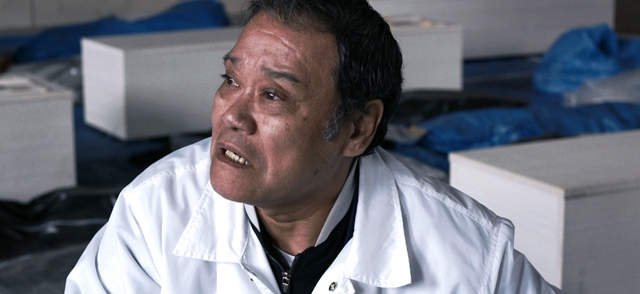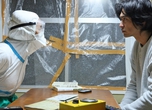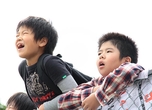Reunion (Itai: Asu e no tokakan)
A stark, largely unsentimental depiction of the tsunami’s wake

© 2013 Fuji Television
Posted: Fri Feb 15 2013
Director: Ryoichi Kimizuka
Starring: Toshiyuki Nishida, Koichi Sato, Toshiro Yanagiba
Time Out rating: 
Japanese title: Itai: Asu e no tokakan
On the first anniversary of the 2011 Tohoku disaster, the New York Times recounted the remarkable story of Atsushi Chiba, a retired undertaker who’d volunteered to work in a temporary morgue in one of the towns worst hit by the tsunami. Amidst chaotic recovery efforts, this kindly septuagenarian had tended to nearly a thousand corpses, ensuring that they were in a presentable state when bereaved family members arrived to identify them, as well as securing each one a proper cremation.
It’s easy to imagine Chiba's tale providing the basis for a pretty mawkish film, like Departures with a higher body count, but director Ryoichi Kimizuka (Nobody to Watch Over Me) has crafted something quite different here. In Reunion, he seems determined not to do anything so crass as turn a real-life tragedy into entertainment. Working from a book by writer Kota Ishii, he's made a stark, respectful and largely unsentimental depiction of what happened in the first few days after the disaster – an occasionally harrowing film that takes the viewer places which most contemporary news reports couldn't (or perhaps wouldn't).
In Kamaishi, Iwate Prefecture, one half of the town is destroyed by the tsunami while the other side, separated only by a tunnel, remains unscathed. With casualty figures threatening to reach into the thousands, a temporary morgue is set up in a school gymnasium, where bewildered city officials, police and medical staff begin the task of examining and identifying the dead. When former undertaker Aiba (Toshiyuki Nishida) visits, he's appalled by the rough manner in which the bodies are being treated, and volunteers his services.
While Koichi Sato's doctor and Toshiro Yanagiba's dentist examine the dead with as much dispassion as they can manage (a tough job when many of the victims are people they knew), Aiba brings some much-needed compassion. He talks to the bodies as he tucks them under blankets, massages muscles in order to move limbs stiffened by rigor mortis, then stays up late at night memorising the names of identified dead so that he doesn't have to refer to them by number; in one poignant scene, he even helps a woman apply makeup to her mother's discoloured face.
If this is all starting to sound a little sugary (Nishida, after all, is better known for comedies than hard-hitting dramas), Reunion is anything but. Kimizuka shoots the action in an austere fashion, using natural lighting and virtually no music, and with a light touch that seldom lingers on the more emotionally charged scenes. It might have benefitted from a more clearly defined narrative arc, but the priority here is evidently on creating a realistic dramatic reconstruction. Only in the final reel does it lose its way, culminating in a gloopy montage that seems to have been plucked from a far lesser film – a bum note in what's otherwise an impressive and, dare I say it, important piece of work.
Reunion opens at cinemas nationwide on February 23
Tweets
- About Us |
- Work for Time Out |
- Send us info |
- Advertising |
- Mobile edition |
- Terms & Conditions |
- Privacy policy |
- Contact Us
Copyright © 2014 Time Out Tokyo














Add your comment